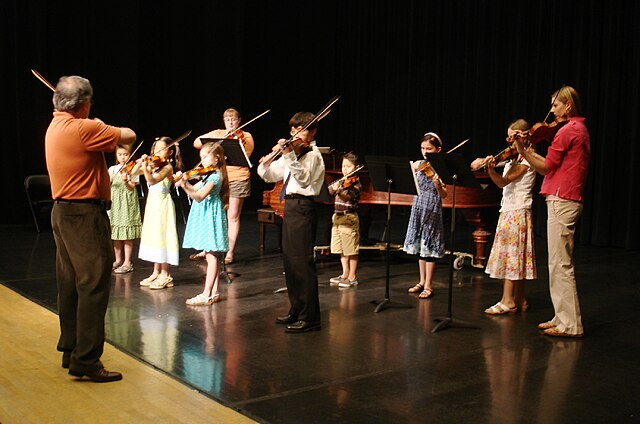Music psychology, or the psychology of music, may be regarded as a branch of both psychology and musicology. It aims to explain and understand musical behaviour and experience, including the processes through which music is perceived, created, responded to, and incorporated into everyday life. Modern music psychology is primarily empirical; its knowledge tends to advance on the basis of interpretations of data collected by systematic observation of and interaction with human participants. Music psychology is a field of research with practical relevance for many areas, including music performance, composition, education, criticism, and therapy, as well as investigations of human attitude, skill, performance, intelligence, creativity, and social behavior.
A brass, spherical Helmholtz resonator based on his original design, circa 1890–1900
A primary focus of music psychology research concerns how best to teach music and the effects this has on childhood development.
Musicology is the scholarly study of music. Musicology research combines and intersects with many fields, including psychology, sociology, acoustics, neurology, natural sciences, formal sciences and computer science.
Music historian Jack Stewart lectures at a conference.
Rosetta Reitz (1924–2008) was an American jazz historian who established a record label producing 18 albums of the music of the early women of jazz and the blues.




